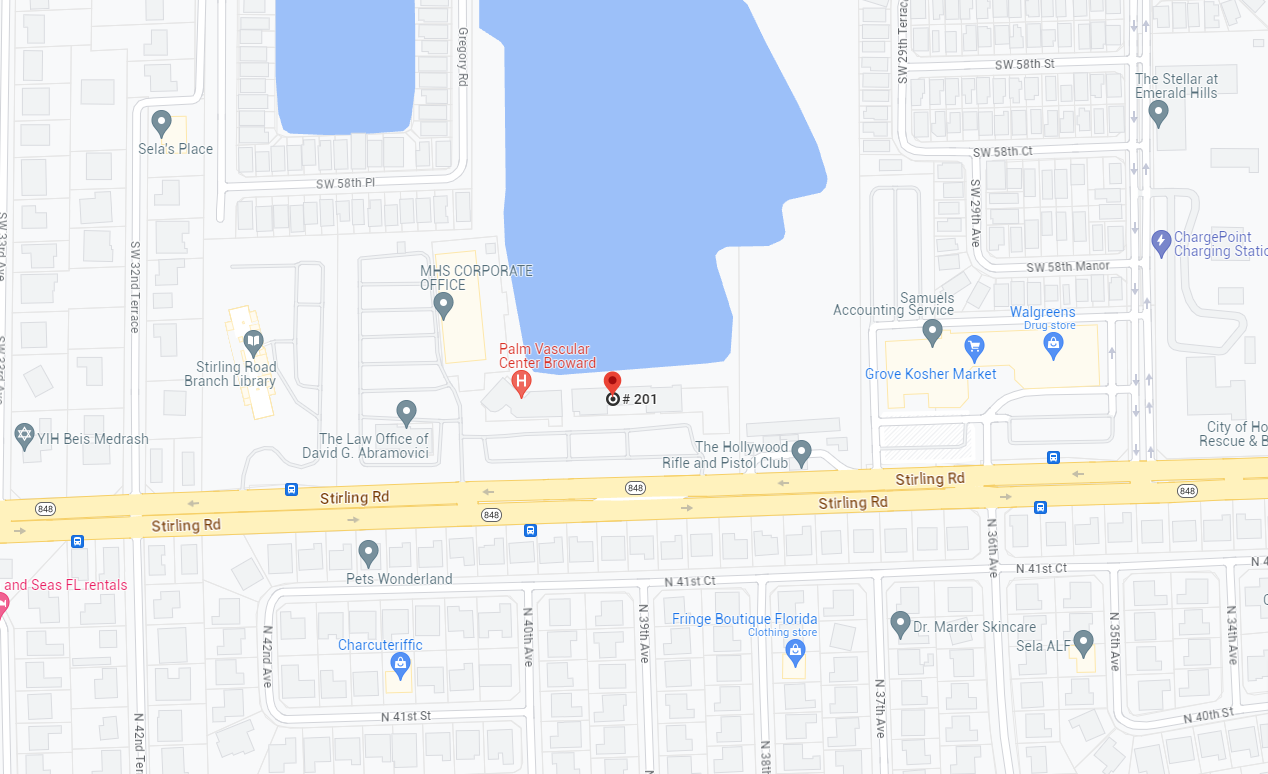New Requirements (and Potential Pitfalls) on Payment for Attorneys Representing Personal Representatives and Trustees
By: Brandon D. Cole
On June 21, 2021, Governor Desantis signed House Bill 625, which amends Sections 733.6171 and 736.1007 of the Florida Statutes regarding the compensation of attorneys representing Personal Representatives and Trustees in Florida (the “Amendments”). The Amendments, applicable to estate and trust administrations commenced on or after October 1, 2021, place additional disclosure requirements on attorneys that (i) want to use the compensation scales set forth in Sections 733.6171(3) and 736.1007(2) that are presumed to be reasonable and (ii) want to be compensated without a court order.
The statutory compensation schedule for an attorney representing the personal representative of an estate is as follows:
(a) One thousand five hundred dollars for estates having a value of $40,000 or less.
(b) An additional $750 for estates having a value of more than $40,000 and not exceeding $70,000.
(c) An additional $750 for estates having a value of more than $70,000 and not exceeding $100,000.
(d) For estates having a value in excess of $100,000, at the rate of 3 percent on the next $900,000.
(e) At the rate of 2.5 percent for all above $1 million and not exceeding $3 million.
(f) At the rate of 2 percent for all above $3 million and not exceeding $5 million.
(g) At the rate of 1.5 percent for all above $5 million and not exceeding $10 million.
(h) At the rate of 1 percent for all above $10 million.
§ 733.6171(3), Fla. Stat. The Florida Trust Code provides for attorney compensation at a rate equal to 75% if the same schedule.
Unless otherwise agreed, compensation based on the value of the trust assets immediately following the settlor’s death and the income earned by the trust during initial administration at the rate of 75 percent of the schedule provided in s. 733.6171(3)(a)-(h) is presumed to be reasonable total compensation for ordinary services of all attorneys employed generally to advise a trustee concerning the trustee’s duties in initial trust administration.
§ 736.1007(2), Fla. Stat. Although these schedules will continue to be presumed reasonable, attorneys will be required to make additional disclosures or risk inviting a challenge to the amount of fees based on the failure to make the required disclosures.
The Amendments insert substantially similar subparagraphs into both the estate and trust Statutes. The estate Statute states the following:
(b) An attorney representing a personal representative in an estate administration who intends to charge a fee based upon the schedule set forth in subsection (3) shall make the following disclosures in writing to the personal representative:
1. There is not a mandatory statutory attorney fee for estate administration.
2. The attorney fee is not required to be based on the size of the estate, and the presumed reasonable fee provided in subsection (3) may not be appropriate in all estate administrations.
3. The fee is subject to negotiation between the personal representative and the attorney.
4. The selection of the attorney is made at the discretion of the personal representative, who is not required to select the attorney who prepared the will.
5. The personal representative shall be entitled to a summary of ordinary and extraordinary services rendered for the fees agreed upon at the conclusion of the representation. The summary shall be provided by counsel and shall consist of the total hours devoted to the representation or a detailed summary of the services performed during the representation.
§ 733.6171(2)(b), Fla. Stat. The trust statute, section 736.1007(1)(b), contains substantially the same language. In addition to making these disclosures, the attorney must obtain a signed acknowledgement of the disclosures from the personal representative or trustee. § 733.6171(2)(c), Fla. Stat.; § 736.1007(1)(c), Fla. Stat.
Some attorneys charge fees that are not dependent on the statutory schedule and may assume that these disclosure requirements will not change their standard client intake documents. However, that is not the case, because the amendments also alter an attorney’s right to be paid without a court order. Section 733.6171(1) is amended to replace the mandatory “shall be entitled” language with language stating that attorneys “are entitled to reasonable compensation payable from the estate assets without court order,” but making payment subject to new Section 733.6171(2)(d). The same is true for Section 736.1007(1) of the Florida Trust Code.
The new Section 733.6171(2)(d) provides that “f the attorney does not make the disclosures required by this section, the attorney may not be paid for legal services without prior court approval of the fees or the written consent of all interested parties.” This requirement is the same for the attorney for a trustee. Therefore, even if an attorney is not relying on the statutory fee schedule, the attorney must make the new disclosures if the attorney wants to be paid without the necessity of seeking a court order or the consent of all the interested parties or qualified beneficiaries.
In addition to making the statutory compensation scale subject to the new disclosures, the amendment also subjects the fee for rendering extraordinary services to the disclosures and adds the complexity of the estate as a factor in determining the attorney’s compensation for extraordinary services. § 733.6171(3), (4), Fla. Stat. The same is true for the amended trust statute, which subjects the compensation for an attorney’s ordinary, extraordinary, and limited services (as defined by a retaining agreement) to the new disclosures. § 736.1007(2), (3), and (5), Fla. Stat
If an attorney does not make the required disclosures, not only will the attorney need to seek a court order or the consent of the interested persons or beneficiaries, the attorney also opens his or her compensation up to challenge based on “[a]ny agreement relating to the attorney’s compensation and whether written disclosures were made to the personal representative in a timely manner under [certain] circumstances[.]” § 733.6171(5)(i), Fla. Stat.; § 736.1007(6)(i), Fla. Stat. While it is possible that a judge will award the attorney the full fee over an objection, the potential for additional litigation over the attorney’s compensation based on nondisclosure adds unnecessary risk and complexity to the estate or trust proceedings.
Practitioners should make modifications to their standard client intake documents sooner, rather than later, as these changes impact administrations commenced on or after October 1, 2021. Any estate and trust administrations based on unmodified client intake documents should be commenced prior to October 1, 2021. If commenced on or after October 1, 2021, the disclosure should be made, and a signed acknowledgement should be obtained from the personal representative or trustee.
If you are nominated to be a personal representative or trustee and are seeking to commence or continue the administration of an estate or trust in Broward, Miami-Dade, Palm Beach County, or anywhere else in Florida, please contact a Broward County Probate & Estate Administration lawyer by calling (954) 764-6766 or by completing the contact form on this page.
Garnishing a Judgment Debtor’s Interest in an Estate
By: Brandon D. Cole
At long last, you emerge victorious in your lawsuit, holding your judgment high. One problem, the judgment debtor does not have sufficient assets to satisfy it. However, you learn that the judgment debtor has an interest in an ongoing estate proceeding and will receive a distribution upon the conclusion of the proceeding. You rush out, have the writ of garnishment issued, and serve it on the personal representative. In the words of Lee Corso, “not so fast my friend.” When it comes to seeking to garnish a beneficiary’s interest in an estate, the Florida Probate Code requires an additional step prior to permitting the garnishment of an estate’s assets.
Over a century ago, the Florida Supreme Court, in Post v. Love, 19 Fla. 634 (1883), held that an executor of an estate could not be required to answer a writ of garnishment by a creditor of an heir. The court’s decision was based on (i) the text of the garnishment statute, which limited the garnishment of intangible personal property to debts due from third-parties, and (ii) the concern that allowing estates to be garnished would cause “great confusion and expense” in their administration. Id. at 642.
In 1967, the legislature amended Section 77.01 of the Florida Statutes to allow the garnishment of “intangible personal property of [the] defendant in the possession or control of a third person.” §77.01, Fla. Stat. As the Fourth District Court of Appeal noted in Murray v. Nationsbank of Florida, N.A., 846 So.2d 548 (Fla. 4th DCA 2003), this change in the garnishment statute now permits a beneficiary’s interest in an estate to be garnished. The Murray court reasoned that, because the right to inherit from an estate is a type of intangible personal property, the expansion of the categories of property that can be garnished under the 1967 amendment to the garnishment statute included a beneficiary’s interest in an estate. Id. at 551. But the revised garnishment statute only allows a beneficiary’s interest to be garnished; what about the additional step mentioned above?
The predecessor to the Florida Probate Code, the Probate Act, prohibited “any levy [] against any property, real or personal, of the estate of a decedent.” Brown v. Sweat, 6 So.2d 538 (Fla. 1942). However, the current statute, Section 733.706, does not contain such a blanket prohibition, but, instead, provides that:
Except upon approval by the court, no execution or other process shall issue on or be levied against property of the estate. An order approving execution or other process to be levied against property of the estate may be entered only in the estate administration proceeding.
733.706, Fla. Stat. Thus, the current statute allows a writ of garnishment to issue against the property of an estate only if the probate court enters an order approving issuance of the writ.
The Murray court discussed two additional points that should be addressed in seeking an order approving the issuance of a garnishment. First, the probate court should make a finding that the garnishment will not interfere in the administration of the estate. Murray, supra, at 552. Because the probate court is not obligated to approve the issuance of a writ of garnishment against the estate, it is the responsibility of the party seeking approval to show that the garnishment will not be intrusive or disruptive to the estate administration. If the garnishment will be disruptive and cause the estate’s expenses to increase unnecessarily, it not only affects the interest of the judgment debtor, but the rights of all of the interested parties to the estate. Second, the probate court must control any payments from the estate’s assets. Id. This is important because Section 733.706 requires not only approval of the issuance of process, but also approval of the execution against the estate’s assets.
Let us summarize the process of garnishing property of an estate. First, a creditor must obtain its judgment. Second, the creditor must file a motion in the probate proceeding requesting the entry of an order (1) permitting a writ of garnishment, against someone to whom the estate is indebted, to be issued against and served on the personal representative of the estate, (2) finding that the garnishment will not interfere with the administration of the estate, and (3) stating that the probate court will control any payments from the estate assets. Third, the creditor must follow the standard statutory procedure for garnishment before the court from which the garnishment issued and serve the garnishment on the personal representative. Finally, the creditor must seek the approval of the probate court to execute against the judgment debtor’s interest.
The creditor should be aware of two relevant issues. First, the execution may not be approved until the personal representative is ready to distribute the estate’s assets and close the estate. Second, if the garnishment is served on the personal representative before a determination can be made of the amount due the judgment debtor, the personal representative may not be able to state in his or her answer whether the estate is indebted to the judgment debtor or list the property of the judgment debtor in the personal representative’s possession or control. The impact of a premature garnishment on a personal representative in Florida has not yet been determined by the appellate courts.
If you are a judgment creditor, and you are seeking to garnish the judgment debtor’s interest in an estate in Broward, Miami-Dade, Palm Beach County, or anywhere in Florida, please contact a Broward County Probate & Estate Administration lawyer by calling (954) 764-6766 or by completing the contact form on this page.






